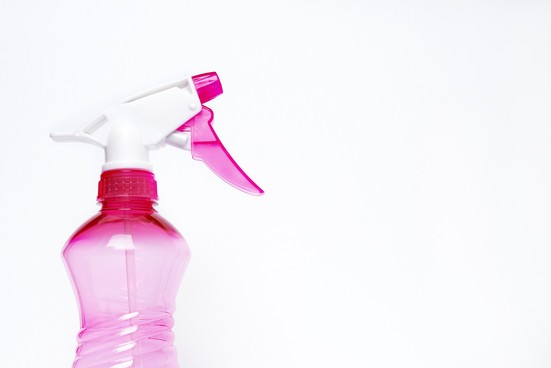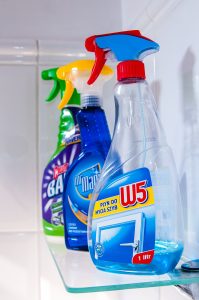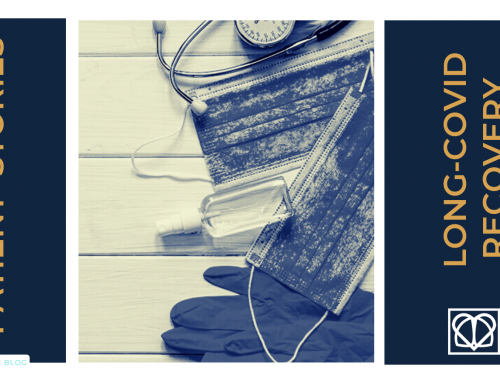
You may have seen the alarming headlines over the last week about how certain cleaning products could be as harmful to your lungs as smoking 20 cigarettes a day! We all think of air pollution being caused by carbon dioxide from vehicle emissions, or cigarette smoke but the problem could be much closer to home.
A new Norwegian study using data from The European Community Respiratory Health Survey (ECRHS) followed more than 6,000 people for a 20 year period, looking specifically at lung function and the use of cleaning products. The study indicates that those who use household products on a regular basis are at greater risk of developing chronic obstructive pulmonary disease (COPD) – which includes chronic bronchitis and emphysema.
The research revealed that women in particular suffered significant health problems after long-term use of these products. Lung function for those who clean at home is 14% lower than someone who isn’t involved in any cleaning.
The figures for people who clean for a living are even higher, as they suffered from a 17% greater decline in lung function compared to the average person.
The chemicals that are in many cleaning products are the culprits. Common household cleaning products can contain chemicals called VOCs – volatile organic compounds. Some of these are acetone, benzene and formaldehyde, and along with other harmful ingredients such as ammonia and bleach, the concoction becomes a dangerous cocktail of chemicals which can damage the lungs, cause allergic reactions and headaches. The chemicals in cleaning products irritate the mucous membranes that line the airways of the lungs, causing long-term damage.
These chemicals disperse in the air as soon as they’re used, so if you suffer from COPD then the advice is to avoid exposure to the VOCs & other chemicals as best you can.

What products should you watch out for?
-
Aerosol spray products (health, beauty or cleaning)
-
Chlorine bleach
-
Air fresheners
-
Furniture and floor polish
-
Detergents and dishwashing liquid
-
Oven cleaners
-
Rug, carpet and upholstery cleaners;
-
Dry cleaning chemicals
-
Paints and paint strippers
-
Pesticides and fungicides
-
Varnishes
-
Glues
Being aware of how exposure to these products could affect your lung function is important as any one of them could prove to be a trigger for your lung condition.
What can you do to avoid being affected?
-
Try going ‘au naturel’ – is it time to go back to basics?! Those traditional cleaning methods that your grandmother used to use are making a comeback! Think white vinegar and lemon juice and you’re on the right track. These are natural products that not only achieve great cleaning results but they don’t contain any of those nasty chemicals. In fact, Prof Dr Cecile Svanes of the University of Bergen who conducted the study actually maintains that a wet microfibre cloth should be enough to clean most surfaces, without using any additional substances.
-
Always read the label – before you buy any cleaning product check out the list of ingredients, even on those products that are labelled “green” or “natural”. Try to choose products that have no VOCs, fragrances, irritants and flammable ingredients, or at the very least those that contain them in reduced amounts.
- Liquid vs gas… the science – aiming for solid or liquid cleaning products as opposed to sprays is highly recommended. This is simply because sprays disperse quickly and easily into the air, which results in you breathing them in more quickly too. They travel much further down your airways and can trigger a reaction.
-
Ventilate, ventilate, ventilate – open your windows when you’re cleaning or decorating to allow as much ventilation into your home. This will help disperse any chemicals in the air much more quickly.
-




